What is Itikaf in Ramadan: Know the Virtues and Rules

Want to maximise your chances of catching Laylatul Qadr? I’tikaf—staying in the masjid during the last 10 days of Ramadan—helps you focus on worship and increases your chances. Our Prophet ﷺ never missed it during this blessed period.
Once you understand its virtues, you’ll be motivated to do it too. This blog will guide you through everything you need to make the most of this significant time.
What is Itikaf in Islam?
The word Itikaf (اعتكاف) in Arabic means to adhere or commit oneself to something. In Islamic terms, Itikaf means the act of a person staying in the Mosque for a certain period of time in seclusion and devoting him/herself to the worship of Allah. We can also refer to it as a ‘ritual retreat’ to Allah.
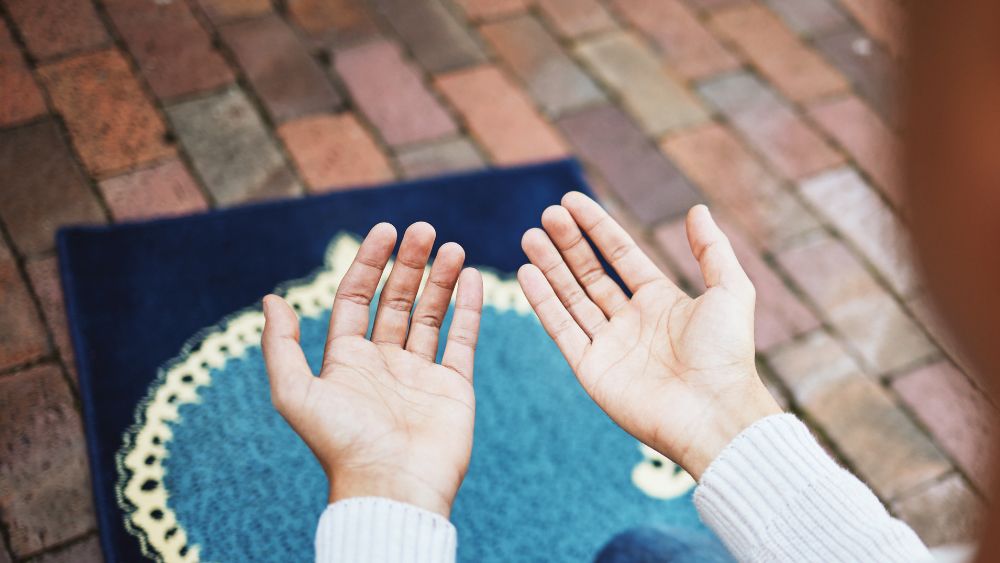
When is Itikaf 2025?
Rasulullah ﷺ told us to perform I’tikaf during the last 10 days of Ramadan. In 2025, I’tikaf will start on 19th March after Maghrib and end either on 28th or 29th March, based on the moon sighting. Therefore, depending on your region, the date may vary

I’tikaf in the Quran, Sunnah and Scholarly Consensus
Itikaf have been mentioned in the Quran. Allah says:
وَإِذْ جَعَلْنَا ٱلْبَيْتَ مَثَابَةًۭ لِّلنَّاسِ وَأَمْنًۭا وَٱتَّخِذُوا۟ مِن مَّقَامِ إِبْرَٰهِـۧمَ مُصَلًّۭى ۖ وَعَهِدْنَآ إِلَىٰٓ إِبْرَٰهِـۧمَ وَإِسْمَـٰعِيلَ أَن طَهِّرَا بَيْتِىَ لِلطَّآئِفِينَ وَٱلْعَـٰكِفِينَ وَٱلرُّكَّعِ ٱلسُّجُودِ
Meaning: “And [mention] when We made the House [i.e., the Kaʿbah] a place of return for the people and [a place of] security. And take, [O believers], from the standing place of Ibrahim a place of prayer. And We charged Ibrahim and Ismail, [saying], “Purify My House for those who perform tawaf and those who are staying for worship (for Itikaf) and those who bow and prostrate [in prayer].” [Surah al Baqarah: 125]
Allah also says in the Quran:
وَلَا تُبَـٰشِرُوهُنَّ وَأَنتُمْ عَـٰكِفُونَ فِى ٱلْمَسَـٰجِدِ
Meaning: “And do not have (sexual) relations with them (your wives) as long as you are staying for worship in the mosques (in Itikaf).” [Surah Al Baqarah: 187]
Itikaf has also been mentioned in numerous hadiths. Abdullah Ibn Umar (R.) narrated
أَنَّ النَّبِيَّ صلى الله عليه وسلم كَانَ يَعْتَكِفُ فِي الْعَشْرِ الأَوَاخِرِ مِنْ رَمَضَانَ
Meaning: The Messenger of Allah (ﷺ) used to observe I’tikaf in the last ten days of Ramadan. [Sahih Muslim: 1171]
Itikaf has also been proven by scholarly consensus. Imam An-Nawawi, Ibn Qudamah, Ibn Taymiyah, and others (RA) have verified that Itikaf is a Sunnah of Rasulullah ﷺ and a part of Shariah. [Al-Majmu: 6/404; Al-Mughni: 4/456; Sharh al-‘Umdah: 2/711]
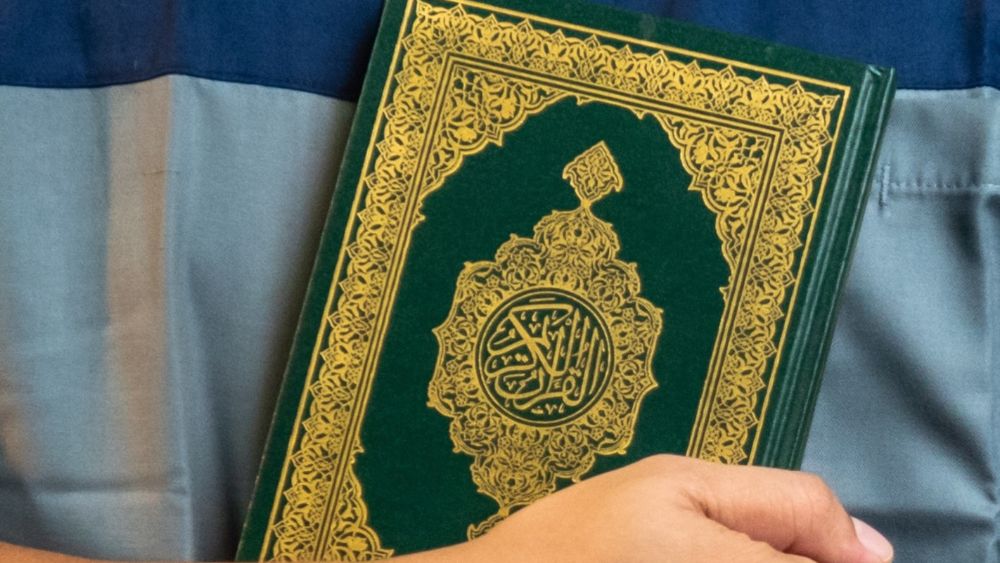
Types of Itikaf
There are three types of Itikaf. They are:
- Compulsory Itikaf
- Emphasized Sunnah Itikaf
- Recommended Itikaf
The compulsory Itikaf is the one that one must perform if he/she has vowed to do so.
The emphasized Sunnah Itikaf is performed during the last 10 days of Ramadan. It is a communal Sunnah. This means that if no one in the community has performed it, then they are all sinful. However, if a few people perform the emphasised Sunnah Itikaf, then they raise the sin from the community.
The recommended Itikaf is any Itikaf done other than the above-mentioned two. It has no minimum time length, and fasting is not required. It can be done at any time of the year.
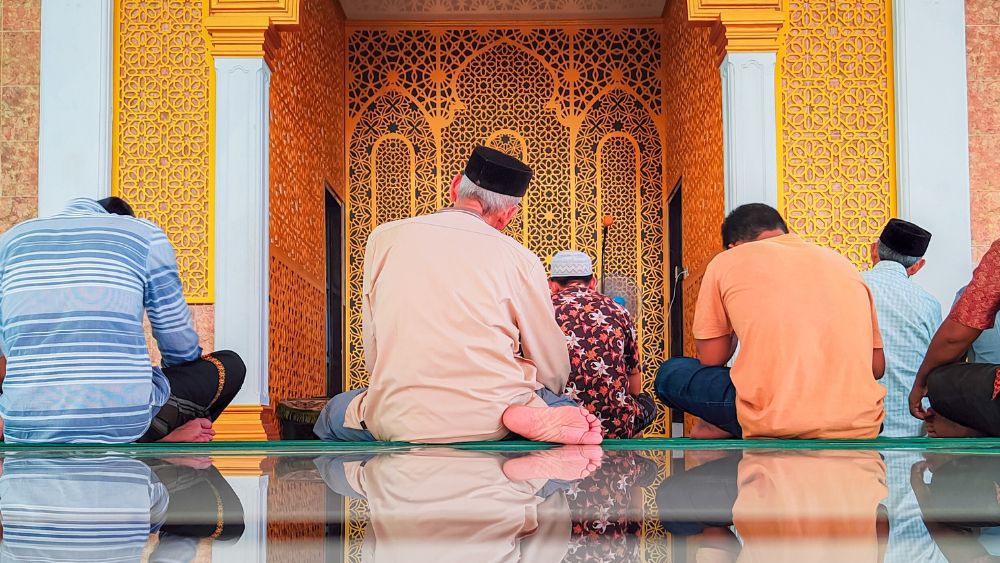
Why Should We Perform Itikaf?
This ultra-materialistic world has a very deep effect on our behaviour. Lack of spirituality and remembrance of Allah has made our hearts rough. Any fundamental change in the existing world order seems unlikely, at least not overnight.
We have our preoccupation due to our commitments to our families and workplaces. Raising a family and meeting their demands seems ever so challenging and time-consuming. As a result, our relationship with our Rabb (Allah) is weakening. This is why Itikaf is so important during Ramadan.
Here are several ways Itikaf will help you boost your Iman.
- Dedicating 10 days of the year solely to Allah is a great way to clean our hearts. It is the perfect opportunity to take a break from our busy schedules, family and social responsibilities and dedicate ourselves purely to the service of Allah.
- Itikaf is the perfect opportunity to bond with the Quran and remind ourselves of the only reason why we exist on earth. And that is to worship Allah alone. Spending long hours at night reciting and contemplating the Word of Allah can rub away the rust of this earth from our hearts.
- Itikaf is the ideal occasion to redeem ourselves by recharging our Iman, attaining Allah’s mercy & forgiveness, and gaining the rewards of Laylatul Qadr. And that is why we should perform Itikaf.

What are the Virtues of Itikaf?
Itikaf itself is an Ibadah. There are many virtues of performing Itikaf mentioned in Hadith. Here we have mentioned some.
1. A Mutakif (Person Doing Itikaf) is Safe from Sin
The Messenger of Allah ﷺ said this about a person performing Itikaf:
هُوَ يَعْكِفُ الذُّنُوبَ وَيُجْرَى لَهُ مِنَ الْحَسَنَاتِ كَعَامِلِ الْحَسَنَاتِ كُلِّهَا
Meaning: “He is refraining from sin and he will be given a reward like that of one who does all kinds of good deeds.” [Sunan Ibn Majah: 1781; classified as Daif (weak)]
2. Itikaf will Protect You from Hellfire
Rasulluah ﷺ said: “Whoever observes Itikaf for one day seeking thereby the Face of Allah, Allah will place between him and the fire three ditches wider than the distance between the east and the west.” [Al-Tabarani, Al-Hakim and Al-Bayhaqi; classified as Daif (weak) by al-Albaani in Al-Silsilah al-Da’eefah, 5345]

3. Your Previous Sins Will be Forgiven
Prophet ﷺ said: “Whoever observes i’tikaf out of faith and in the hope of reward will be forgiven his previous sins.” [Al-Daylami; classified as Daif by Al-Albani in Da’if Al-Jami, 5442]
4. You Will Receive the Rewards of Laylatul Qadr
One of the main reasons for performing Itikaf in the last 10 days of Ramadan is to gain the rewards of Laylatul Qadr. Staying in the Masjid for Itikaf will surely make your connection with Allah better.
Also, seeing others performing Ibadah will inspire and urge you to do the same. This is the best and most effective way to attain the bounties of Qadr.
Itikaf is a spiritual retreat for believers. It is the best way to seclude yourself from the rest of the world and worship Allah to the fullest.

What Are the Itikaf Rules?
Here is a list of the basic rules that you should follow while performing Itikaf.
1. When Should You Begin Your Itikaf?
You should enter your place of Itikaf before the sun sets on the night of the twenty-first.

2. What Should You Bring to Itikaf?
The necessary stuff. Here is a list of items you should bring with you to the Masjid:
- Essential clothes (don’t forget your towel, lungi, undergarments, and handkerchief)
- A copy of the Quran with meaning
- A diary and pen to take notes.
- Miswak and Toothbrush + Toothpaste
- Other toiletries, such as soap, shampoo, oil, cream, etc.
- Some dry food like dates, biscuits etc.
- Perfume or Attar
- Islamic Books (Raheekul Makhtum and Riyad-us-Saliheen recommended)
- A basic feature phone (if possible, avoid it)
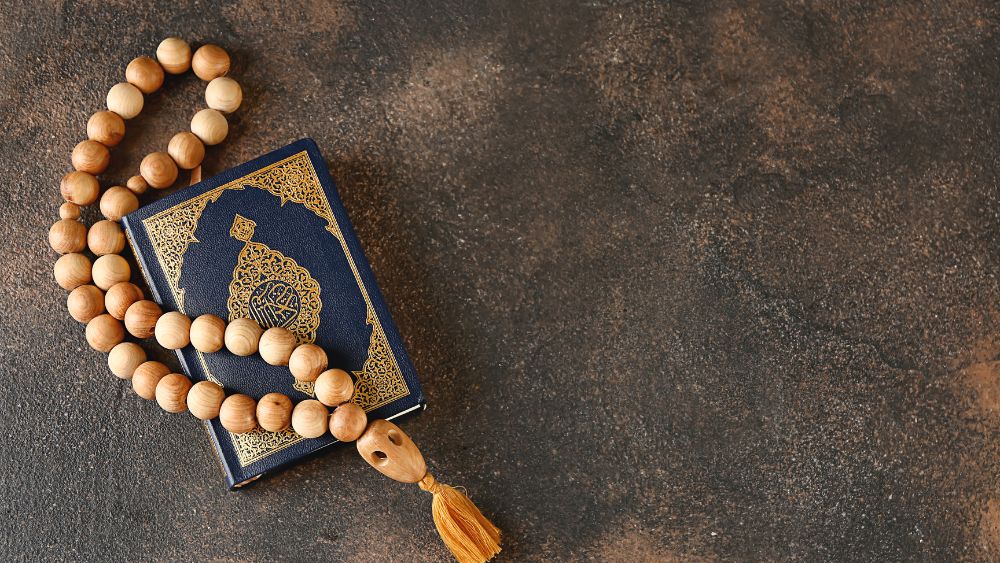
3. What Are the Conditions of Itikaf?
The Mutakif (the one who is sitting for Itikaf) needs to stay in a Masjid where the daily 5 prayers, as well as Jumuah, are prayed in the congregation (Jam’ah).
The minimum time for performing Itikaf is 1 day, according to some scholars. Others have stated that even a short moment in the mosque with the intention of Itikaf is the minimum time.
A woman needs permission from her husband to sit for Itikaf.

4. What to Do During Itikaf?
You can do a whole lot of good deeds while in Itikaf. Some of them are-
- Recite the Quran and try to do Khatmah
- Pray voluntary prayers
- Pray Taraweeh
- Pray Qiyam-ul-Layl (extra night prayers) behind an Imam
- Read Islamic Books (like Seerah, Hadith, history of Islam, and more)
- Make a lot of Dua to Allah
- Make Dhikr of Allah
- Have Islamic discussion circles
- Ask Allah for forgiveness
- Help the elders and make the first-timers comfortable
- Keep a Ramadan Planner at hand to keep track of personal progression
- Teach the Quran and other Islamic teachings to other Mutakif (one who is performing Itikaf)
- Resolve disputes among the people
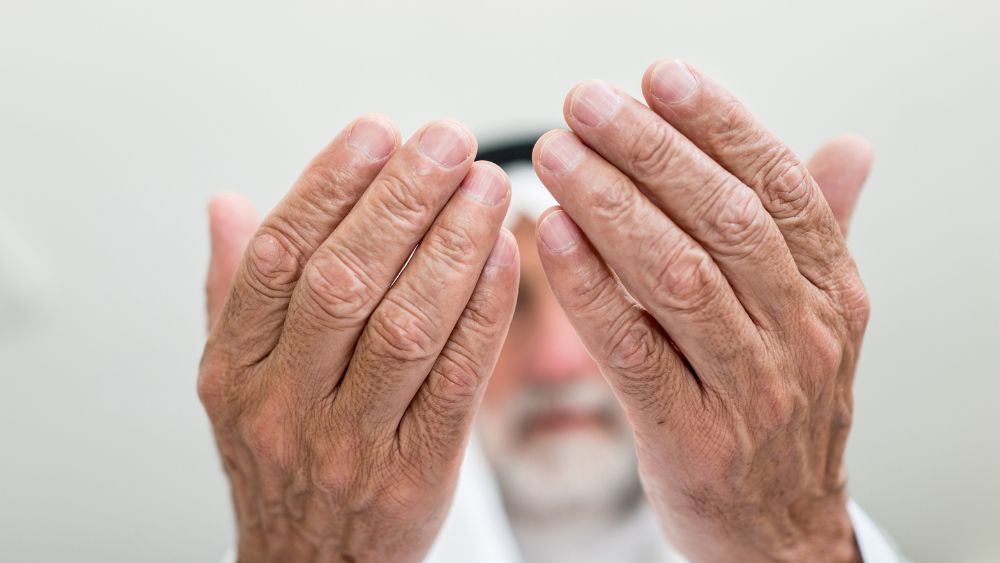
5. What to Avoid in Itikaf?
The Sunnah is for the Mu’takif (the one performing Itikaf) not to visit any sick person during his Itikaf, to accept any invitation, attend to his family’s needs, attend any funeral or go to work outside the mosque.
Aishah (R) said:
السُّنَّةُ عَلَى الْمُعْتَكِفِ أَنْ لاَ يَعُودَ مَرِيضًا وَلاَ يَشْهَدَ جَنَازَةً وَلاَ يَمَسَّ امْرَأَةً وَلاَ يُبَاشِرَهَا وَلاَ يَخْرُجَ لِحَاجَةٍ إِلاَّ لِمَا لاَ بُدَّ مِنْهُ
Meaning: “The Sunnah for the Mu’takif is not to visit any sick person, or attend any funeral, or touch or be intimate with any woman, or go out for any reason except those which cannot be avoided.” [Sunan Abu Dawud: 2473]

6. Which Acts Nullify Itikaf?
- Having intercourse with the wife
- Leaving the Masjid
- For a woman, if her period starts or her husband calls her out of Itikaf

What is the Etiquette of Itikaf?
The etiquettes of Itikaf include the etiquettes of the Masjid as well. Here is a list of good manners that you should follow while in Itikaf:
- Don’t raise your voice in the Masjid even while reciting the Quran. This will disturb other worshippers.
- Clean your place properly after having Iftar or Sehri.
- Kindly keep your baggage tidy.
- Don’t take too much time using the bathroom and toilet. This will be inconvenient for the others.
- Don’t keep bright lights on while praying. This will disturb the ones taking rest. If you want to recite the Quran, you can use a dim light or go to a corner of the mosque.
- Don’t prolong chitchat and gossip with others. Remember, Itikaf is for attaining nearness to Allah and getting the rewards of Laylatul Qadr.
- Even if you don’t like the management of the Masjid or the behaviour of other Mutakifs (the ones who are performing Itikaf), ignore them and focus on your worship. Don’t engage in personal disputes.
- Take sufficient rest during the day so that you can perform Ibadah properly at night.
- If you have a wet dream, immediately go to the bathroom and take a shower. For the sisters, if your periods start, please quit from Itikaf.
- The ones who have performed Itikaf before should help the first-timers.
- Be well-mannered with the Khadim (servant) of the Mosque.
- If someone needs help with anything, try your best to help. If you are unable to, you should politely deny.

FAQs
Q. Is Itikaf Compulsory?
Ans. Itikaf is Sunnah, not compulsory. But if one made a vow to do it, in that case, it becomes obligatory. Please refer to this link for detailed information.
Q. Do leaving the mosque nullify Itikaf?
Ans. If you leave the Masjid for any reason other than necessary, your Itikaf will be invalidated.
Q. What are the Itikaf rules for females?
Ans. There are differences of opinion among scholars as to whether a woman can perform Itikaf at home. Please consult with your local scholars or the scholars you follow.
Q. Can a woman talk to her husband during Itikaf?
Ans. It is permissible for a woman to talk to her husband while in Itikaf.
Q. Can Itikaf be observed at any time?
Ans. Itikaf is a Sunnah and can be performed at any time of the year. But observing it during the last 10 days of Ramadan is better.
Conclusion
Itikaf is a noble act to do in Ramadan. Rasulullah ﷺ and his companions performed it during the last 10 days of Ramadan to bond with Allah and attain the rewards of Laylatul Qadr. We should try our best to follow the Sunnah of our beloved Prophet ﷺ.
We should learn about Itikaf rules before we sit in Itikaf. Let’s devote ourselves to Allah during the last 10 days by sitting Iikaf. This will benefit our spirituality and help us become better servants of Allah.


